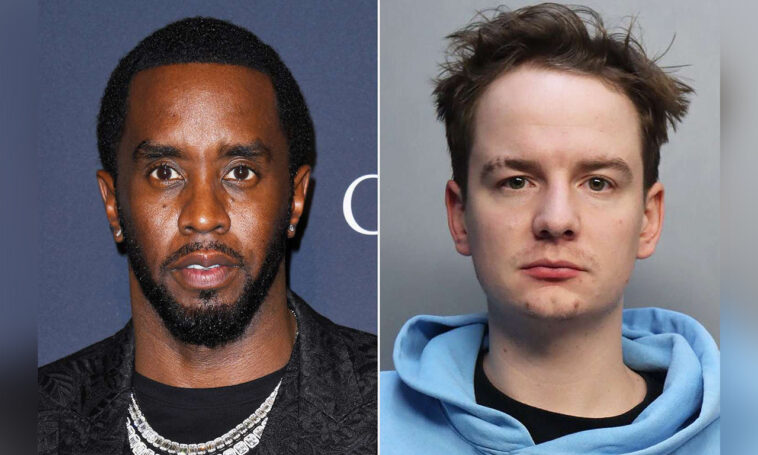Brendan Paul, a former assistant to music mogul Sean “Diddy” Combs, has had all felony drug charges against him dropped by Florida prosecutors. This development comes amidst ongoing legal challenges for Diddy, who remains in custody awaiting trial.
Paul, 25, was arrested in March at Miami-Opa Locka Executive Airport, where authorities found cocaine and marijuana candy in his possession. Charged with felony drug possession, Paul avoided jail time by completing a pretrial diversion program, as confirmed by his attorney, Brian Bieber. On Tuesday, the charges were officially dismissed, signaling the end of his legal ordeal.
Paul, a former Syracuse University basketball player, worked closely with Diddy as his primary assistant. His arrest coincided with federal raids on Diddy’s mansions in Miami and Los Angeles, sparking speculation about his potential involvement in the larger case. Many believed Paul might strike a deal with federal prosecutors to testify against Diddy. However, federal sources insist no such agreement occurred.
Paul’s attorney, Bieber, maintained throughout the process that his client would address the charges solely within the judicial system, steering clear of media speculation. With all charges dropped, Paul will now avoid both jail time and probation, bringing his chapter of this high-profile saga to a close.
While Paul’s legal troubles have ended, Diddy, 55, faces an uphill battle. Currently held at the Brooklyn Metropolitan Detention Center, Diddy remains in custody after his third bail appeal was denied late last month. His trial is scheduled for May 2025.
U.S. District Judge Arun Subramanian presided over Diddy’s most recent bail hearing. Despite the rapper’s legal team proposing a $50 million bail package to guarantee his compliance with court orders, the judge denied the request. Subramanian cited compelling evidence of Diddy’s violent tendencies and potential for witness tampering, describing these risks as too significant to grant bail.
In denying bail, Subramanian referenced a 2016 incident captured on hotel surveillance footage, where Diddy was seen assaulting his ex-girlfriend, Cassie. This video served as “direct evidence of Combs’s violence,” according to the judge.Additionally, the court highlighted allegations of witness tampering. Prosecutors argued that Diddy had been influencing witnesses from behind bars, an assertion supported by evidence of rule violations within the detention center.
Court documents revealed that Diddy allegedly paid for other inmates’ phone access codes to facilitate unauthorized three-way calls with individuals not on his approved contact list. Subramanian noted that this behavior posed a serious risk to the integrity of the judicial process.
The ruling stated: “The Court finds that the government has shown by clear and convincing evidence that no condition or combination of conditions will reasonably assure the safety of the community.”
The decision to deny bail underscores the gravity of the charges against Diddy, as well as the evidence prosecutors have presented. With allegations of violence, witness intimidation, and rule violations, the case paints a complex and troubling picture of the rapper’s actions both inside and outside of detention.
While Brendan Paul’s exoneration closes one chapter in this ongoing saga, Diddy’s trial looms as the centerpiece of this legal drama. Set for May 2025, it promises to be a high-stakes event with potential ramifications for all parties involved.
As the case progresses, it continues to draw attention to the challenges of balancing celebrity status with accountability in the legal system. Diddy’s legal troubles serve as a stark reminder of the far-reaching consequences of power, influence, and alleged misconduct.




Join the Community and Be a Part of the Conversation
You must be logged in or registered to post a comment.